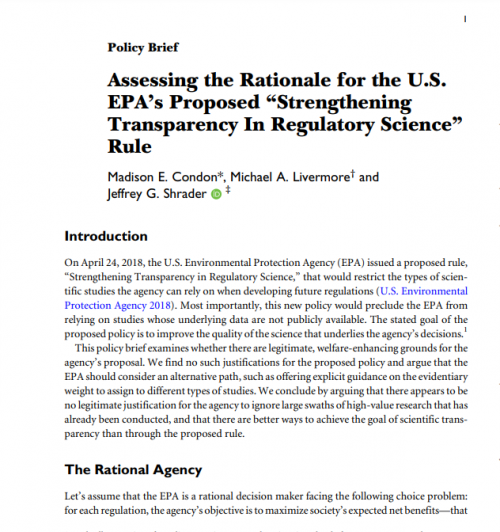-
Assessing the Rationale for the EPA’s Proposed Regulatory Science Rule
The U.S. Environmental Protection Agency (EPA) is considering a new policy that would prohibit the agency from issuing regulations that rely on studies whose underlying data are not publicly available. While the EPA claims it is pursuing this policy in the interest of transparency, we argue that such a prohibition would greatly hinder, rather than help, the rulemaking process and would likely result in undesirable regulatory outcomes that fail to maximize economic welfare.
-
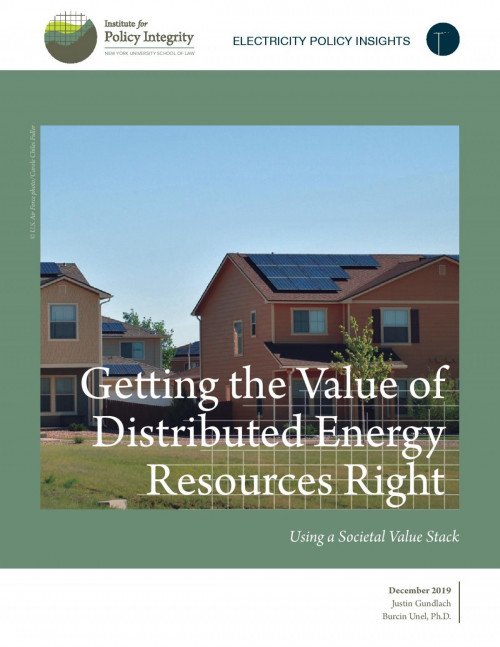
Getting the Value of Distributed Energy Resources Right
Using a Societal Value Stack
Our report notes the growing presence of distributed energy resources, like solar panels and energy storage installations, and explains how they should be compensated for providing electricity services valued by utilities and their customers. Currently, 40 states use net energy metering programs to compensate DERs. We describe a promising alternative, “value stacking,” which better reflects DERs’ value, and provide suggestions for how to implement this approach.
-
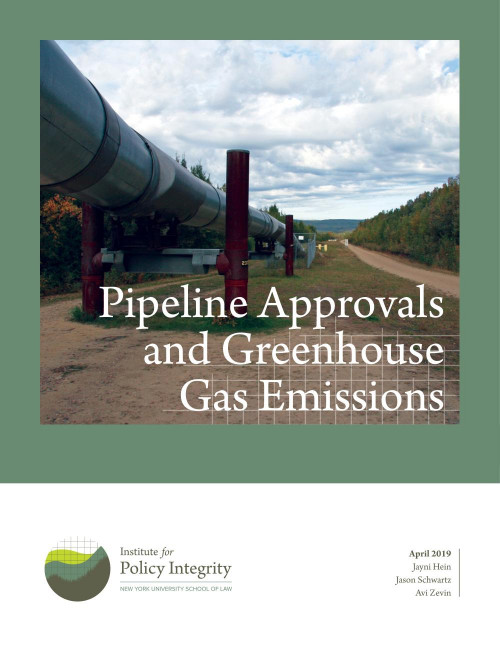
Pipeline Approvals and Greenhouse Gas Emissions
In light of growing public awareness of the environmental effects of pipeline projects, the Federal Energy Regulatory Commission (FERC) has faced competing pressures regarding how to balance the need for new natural gas pipelines with their environmental consequences. Concerns about greenhouse gas (GHG) emissions and resulting climate change effects have become a flashpoint in the debate. Our report examines the legal context surrounding FERC’s evaluation of the environmental impacts of proposed interstate natural gas pipelines. We look at FERC’s obligations under the Natural Gas Act and the National Environmental Policy Act, as well as potential improvements the agency can make to its analyses to better inform policy makers and the public about the impacts of proposed projects.
-
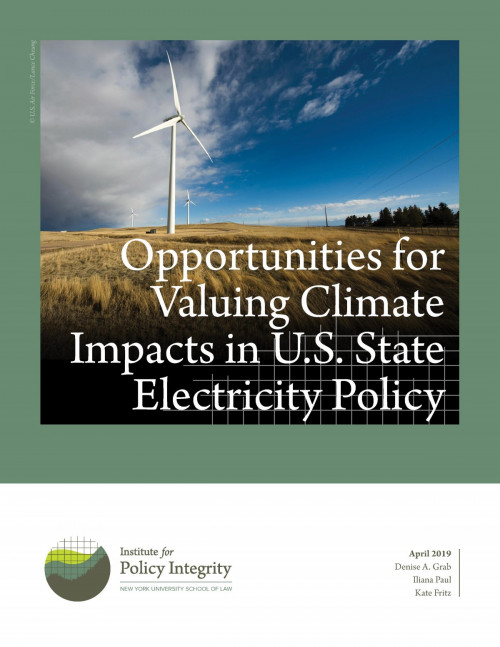
Opportunities for Valuing Climate Impacts in U.S. State Electricity Policy
With an absence of federal leadership on climate change, many states have worked to reduce greenhouse gas emissions on their own, often by incorporating a broader range of considerations into electricity policy. Our report assesses the potential to expand the valuation of climate damages in state electricity policy using Social Cost of Carbon metrics. We examine existing statutes and regulations in all 50 states to identify opportunities for valuing climate impacts around the country.
-
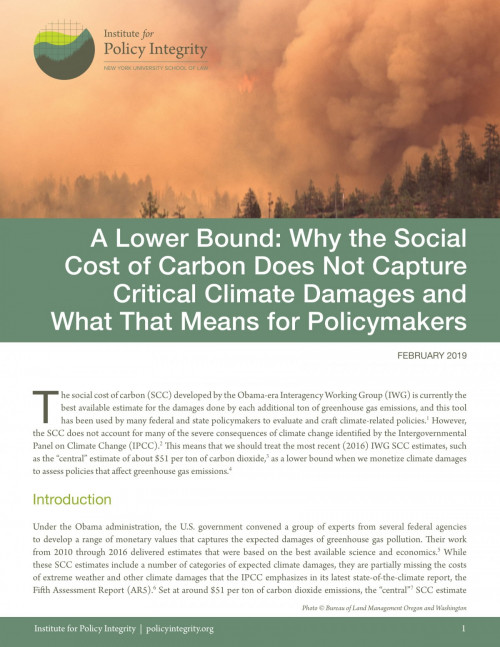
A Lower Bound
Why the Social Cost of Carbon Does Not Capture Critical Climate Damages and What That Means for Policymakers
The Social Cost of Carbon, developed by the Obama-era Interagency Working Group (IWG), is the best available tool for measuring the economic damages from greenhouse gas emissions. It has been used in analysis for over 100 federal regulations that affect greenhouse gas emissions, as well as by a number of states in electricity and climate policy. Still, many significant impacts identified by the Intergovernmental Panel on Climate Change are difficult to quantify and so have been omitted from the IWG SCC estimates. Impacts such as increased fire risk, slower economic growth, and large-scale migration are all unaccounted for, despite their potential to cause large economic losses. Our new issue brief discusses these omissions and other variables that will influence climate outcomes. We encourage policymakers to account for this likely underestimate by viewing the SCC as a lower bound for damages.
Viewing all publications in Reports

